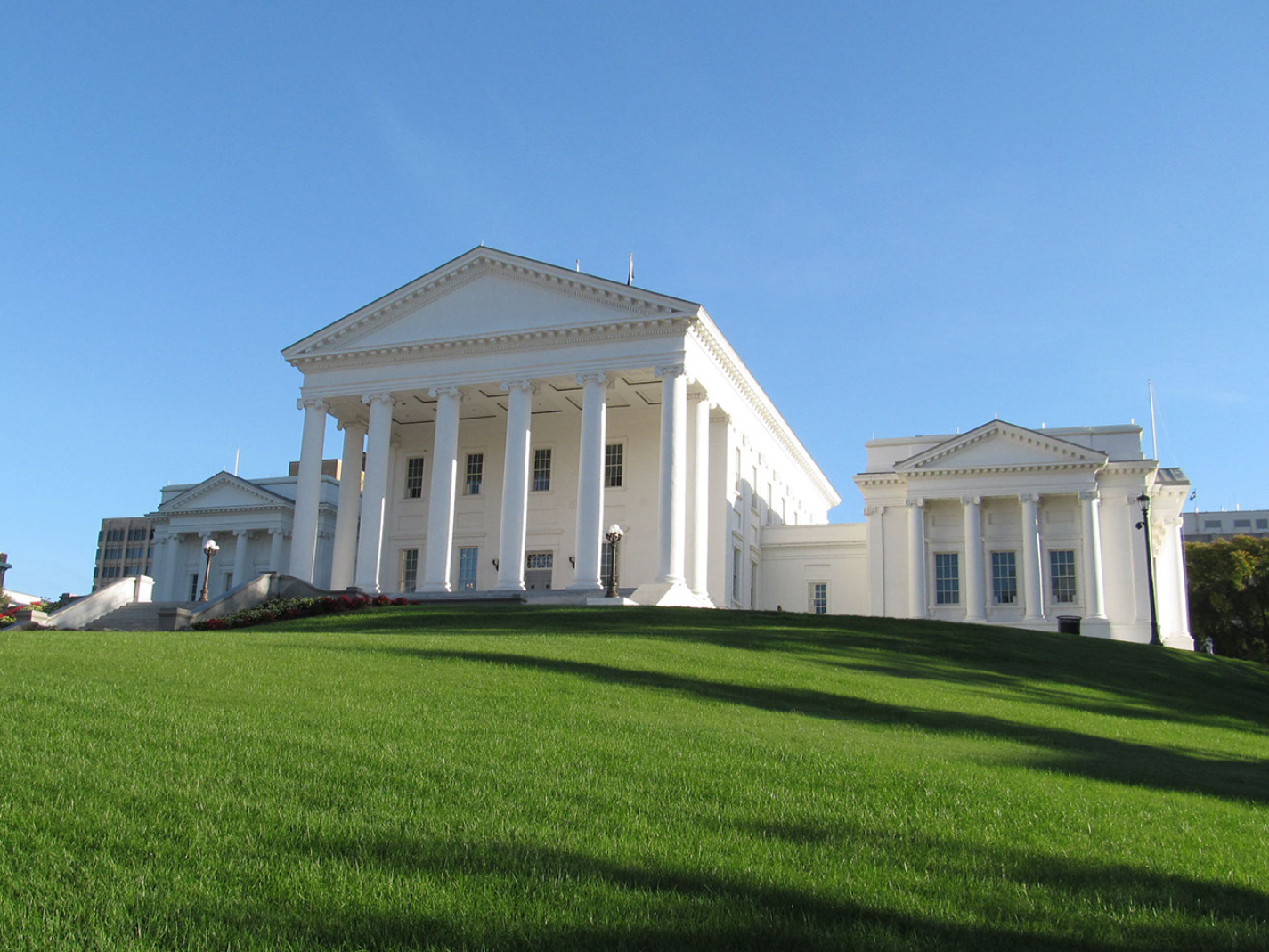Editor’s Note: The National Association of Scholars (NAS) and the Civics Alliance work to ensure that every state has academic standards that promote first-rate education and protect school children from political indoctrination. We promote reform of content standards in every state, along the lines modeled by the Civics Alliance’s American Birthright: The Civics Alliance’s Model K-12 Social Studies Standards, and we have been asked by Virginia citizens to comment on the History and Social Science Standards of Learning for Virginia Public Schools (January 2023). We conclude that the Virginia Board of Education has provided excellent social studies standards—although we provide a series of suggestions for the Board of Education to consider once it has completed implementation of these fine Standards.
We have sent the following letter to the Virginia Board of Education.
Virginia Board of Education
Virginia Department of Education
James Monroe Building
101 N. 14th Street
Richmond, VA 23219
January 13, 2023
Dear Virginia Board of Education,
The National Association of Scholars (NAS) and the Civics Alliance work to ensure that every state has academic standards that promote first-rate education and protect school children from political indoctrination. We promote reform of content standards in every state, along the lines modeled by the Civics Alliance’s American Birthright: The Civics Alliance’s Model K-12 Social Studies Standards,1 and we have been asked by Virginia citizens to comment on the History and Social Science Standards of Learning for Virginia Public Schools (January 2023).2We conclude that the Virginia Board of Education has provided excellent social studies standards. We also believe that the Virginia Board of Education should engage in further improvement of the structure of Virginia social studies education, but we make these suggestions for the Board of Education to consider once it has completed implementation of these fine Standards.
Background Context
Virginia’s social studies adoption process in 2022-2023 has been unusually prolonged and contentious; both the recall of the first draft of the Standards (August 2022) and the publication of the second draft (November 2022) elicited significant public controversy.3 During this adoption process, we sent in two previous comments on Virginia’s draft social studies standards, which contained detailed commentary on how we believed Virginia’s social studies standards should be revised.4 This third draft (January 2023) of the Standards already has taken on board some of our suggestions (see below), as well as responding to public comment by Virginia’s citizenry. The multiple rounds of revision therefore have produced Standards that reflect the Board’s considered judgment, informed by the Virginia public’s opinions, of what the Standards should include. We therefore will confine our suggestions for further improvement to broad suggestions for the long run.
Excellent Improvements
We are delighted with how well the Virginia Education Department has improved the Standards from its first draft (August 2022). While the third draft (January 2023) has been substantially modified in detail from the second draft (November 2022), it preserves the virtues of the second draft, as well as adding some improvements. We would like to point out as particularly fine these aspects of the third draft of the Standards:
Clear Introduction: The third draft has added an Introduction (pp. 7-11) that explains lucidly for Virginia’s citizens the historical background and the rationale of the Standards.
Clarity and Simplicity: The August 2022 Standards had become lengthy, repetitive, and extremely difficult to understand, because they integrated the old Standards and Curriculum Framework into a 300+ page document written in vague, inflated prose. The January 2023 Standards have been reduced to 66 pages. This compact document consists largely of content knowledge, has removed most of the repetitive, coercive “skills” and “inquiry” material, and has been written in much tighter prose.
Democratic Appeal: The January 2023 Standards have been written for all Virginians. The authors of the Standard have written with an eye to democratic accountability and succeeded in crafting social studies standards that pass on to Virginia’s students the history and ideals of every group that has contributed to Virginia’s past and present.
Patriotic Focus: The January 2023 Standards include substantial material to inspire and inform patriotic sentiment in Virginia’s students.
Greece and Rome: The January 2023 Standards include material on ancient Greece and Rome in the K-6 sequence. Virginia students will learn early about the central source of our ideals and institutions of liberty, democracy, and republican self-government.
Radical Polemic Removed: The August 2022 Standards included much radical polemic disguised as pedagogy, which would have served to facilitate teaching Critical Race Theory and action civics. The January 2023 Standards largely have removed this material.
Solid Content: The January 2023 Standards generally provide solid, well-organized content for social studies instruction in history, civics, geography, and economics. This ought to be a minimum expectation for social studies standards—but, as the August 2022 Standards unfortunately demonstrated, it cannot be assumed that the regular processes of state education departments can produce these. The January 2023 Standards accomplish what they ought to do: provide school districts, teachers, students, parents, and citizens a clear, well-organized, rigorous, content-based, and grade-appropriate expectation of what social studies content should be taught and learned in Virginia’s public K-12 schools.
Changes Following Civics Alliance Suggestions: We are gratified that the January 2023 Standards incorporate several suggestions for revision that we included in our previous comments. Our largest suggestion was to simplify and shorten the Standards; this has been done wonderfully. In addition, the Standards now follow a large number of our specific suggestions, including:
- Eliminating the possibility of using mixed media and multimodal presentations to satisfy social studies assignments.
- Eliminating the phrase “water features.”
- No longer describing L. Douglas Wilder as the first African American gvernor in American history, since that description applies rather to P. B. S. Pinchback.
- Including Winfield Scott among notable Virginians of the Civil War.
- Removing the anachronistic and imprecise phrase “hate groups.”
- Restoring the Pacific Theatre to Grade 6 United States History’s discussion of World War II (USII.6.d, p. 33).
- Restoring CE.10 (p. 37), which had been accidentally deleted from the November 2022 draft.
- Revising the standards no early modern Africa (WHII.6, p. 51) to include Asante, Kongo, Ethiopia, and Kongo.
- Revising WHII.11.a (p. 52) to include the phrase “including Gandhi’s leadership”.
- Revising WHII.11.b (p. 52) to include the phrase “including but not limited to Jomo Kenyatta’s leadership of Kenya and Nelson Mandela’s role in South Africa”.
The January 2023 Standards will provide an excellent education for Virginia students.
Suggested Long-Term Revisions
We do not believe it is practicable for the Virginia Board of Education to engage in more extensive revision of the Standards at this date. We do think, however, that the Board should engage in strategic reform of social studies education. Once the Standards have been accepted, we recommend that the Board enact the following reforms, before the next round of social studies standards revision.
Grades 8-10, Geography, Western Civilization, and World History: The Department of Education should introduce a discrete course in Western Civilization, to provide coherent instruction in the development from ancient Greece and Israel to modern Europe of the ideals and institutions of liberty that inspired America’s own ideals and institutions. Virginia should adjust its current Grade 8-10 instruction to include two or three semesters of World Geography, Religions, and History as one discrete sequence and three or four semesters of Western Civilization as another discrete sequence, to replace the current year-long sequences in Grade 8 World Geography, Grade 9 World History and Geography to 1500 CE, and Grade 10 World History and Geography: 1500 CE to the Present.
Skills: The Standards still includes extensive reference to “Skills”. NAS and the Civics Alliance believe that skills instruction at best wastes precious classroom hours on “skills” instruction rather than on teaching content knowledge, and frequently is used to insert radical polemic into the classroom. The Standards use the phrase “apply history and social science skills to” 146 times; if these phrases were deleted, each revised sentence would be shorter, clearer, and identical in substance. The Department of Education in future should confine all reference to “skills” to voluntary suggestions in the Curriculum Frameworks—or remove them entirely from Department materials, to allow teachers maximum freedom to teach social studies content as they judge best.
Cultural History: Future Standards should incorporate more of the history of Western and (especially) American culture, so Virginia students might learn the common Western and American culture that unites Americans of the past, the present, and the future.
Radical Vocabulary: The Standards chose to use fashionable radical language such as Indigenous peoples and enslaved. Unfortunately, this ideological vocabulary is linked to the ideology sometimes referred to as Critical Race Theory. The Department of Education should remove all such concessions to radical language use in future Standards revisions.
Long-Term Standards Revision: The Department of Education should consider the detailed comments for revision that we included in our previous comments, as well as the general principles of American Birthright. We believe that these can inform further improvement for the next revision of Virginia’s social studies standards.
Licensure Requirements and Professional Development: The Department of Education should update its licensure requirements and professional development to ensure that its teachers are equipped to teach curriculum that aligns with these Standards.
Statutory Reform: The Department of Education should ask state policymakers to enact laws that provide statutory underpinnings to the reforms embodied in this Standards, and which ensure proper social studies instruction in all Virginia public K-12 schools.5
Conclusion
Governor Youngkin, Secretary Guidera, and the entire Virginia Board of Education have done an excellent job in revising the Standards. We urge the Board of Education, now or at a later point, to make a larger structural revision to create distinct instruction sequences of Western Civilization and of World Geography and History; to remove references to Skills; to increase coverage of the history of our common American culture; to remove language that facilitates radical polemic and Critical Race Theory; to update licensure requirements and professional development to match the revised Standards; and to ask state policymakers to enact laws that provide statutory underpinnings to the reforms embodied in this Standards. All the long-term changes we urge we believe will complement the spirit and the intent of these Standards, which will pass on to Virginia’s students the history and ideals of every group that has contributed to Virginia’s past and present.
Respectfully yours,
Peter Wood
President, National Association of Scholars
David Randall
Project Director, Civics Alliance



